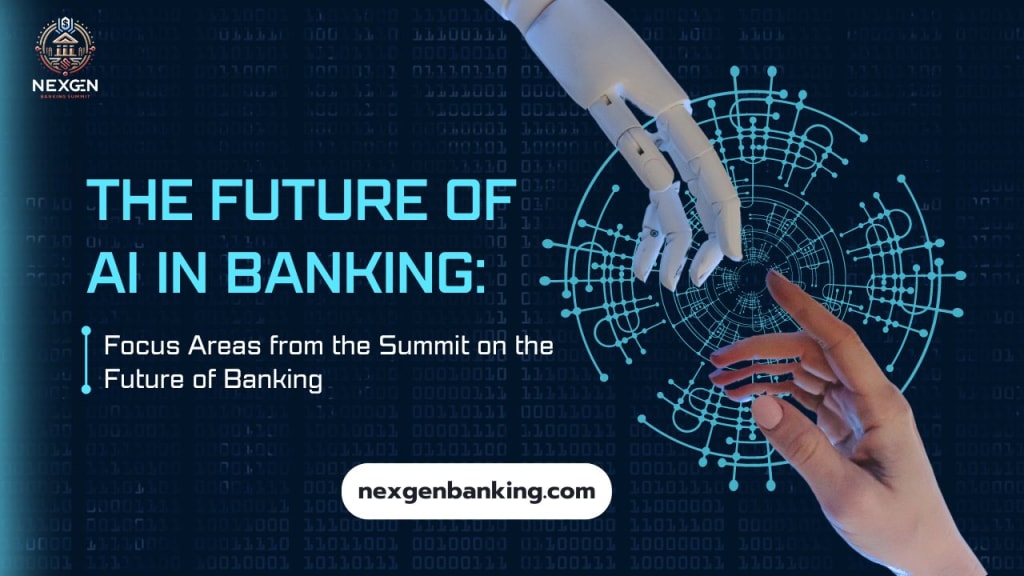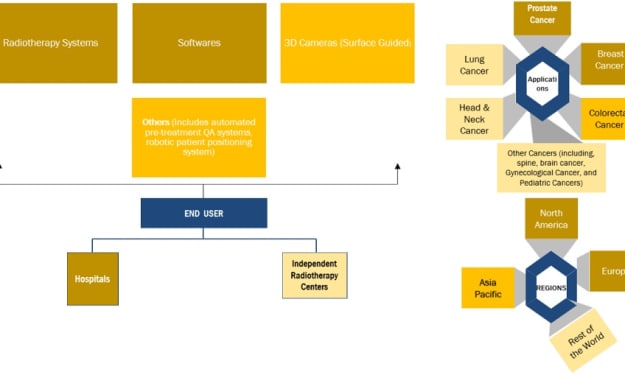The Future of AI in Banking: Focus Areas from the Summit on the Future of Banking
Key Insights and Strategic Directions for Artificial Intelligence in Financial Services

The recent advancements in the field of artificial intelligence (AI) have opened new avenues of development in almost every field, and the banking sector has also been touched by this revolutionary technology. Multiple summits are organized each year in London to discuss the development and adoption of new innovations in banking to enhance customer experience and make it more personalized. This year, the discussion is all about the integration of artificial intelligence into current systems and how it will shape the future of banking. This article dives into the key aspects of the focus of this year's summit on the future of banking.
The Evolution of AI in Banking
Artificial intelligence has transitioned from being a futuristic concept to reality in the previous two years. The summits that will be held this year will focus on implementing AI in core banking software. AI is utilized by banks to create new financial products, enhance client satisfaction, and improve operational efficiency. These advances are especially significant in London, a center of financial innovation, and they serve as a global model.
A. Key Takeaways from the Summit
Now, let us delve into the significant areas where AI can expect to be heavily involved and what its impact will be.
1. Enhancing Customer Experience
One of the most significant themes at this banking summit on AI will be how the power of AI can be leveraged to enhance customer experience. AI-driven chatbots and virtual assistants have brought a significant change in customer service by offering 24/7 support, answering questions in real-time, and resolving issues accurately. Big names in the industry, such as HSBC and Barclays, have already started utilizing AI-powered chatbots that can tackle a broad range of customer interactions, from account inquiries to transaction processing. This move is not only streamlining operations but also significantly improving customer satisfaction.
2. Risk Management and Fraud Detection
Banks are taking advantage of AI’s ability to make strong predictions based on past and real-time data, which is proving to be invaluable in risk management and fraud detection. Experts underscored how machine learning algorithms are used to detect unusual transaction patterns and potential fraud, even before it occurs. In addition to minimizing financial losses, this proactive strategy raises public confidence in banking organizations. In London, where risk management is of paramount importance, these technologies are establishing new benchmarks.
3. Personalized Banking Services
Personalization is another major focus of discussion in this open banking summit. With the help of AI, banks can analyze customer data and preferences to offer financial solutions that are specific to their needs. For instance, AI can help in creating a personalized investment portfolio according to the risk capacity of an individual, offer mortgage recommendations and suggest savings strategies that match an individual’s financial goal. This degree of customization is becoming more and more crucial in the cutthroat London banking sector, where clients have high standards.
B. AI in Core Banking Software
Backend processes are being transformed by the integration of AI into core banking software. An expensive and inefficient legacy technology is a usual burden on traditional core banking systems. These systems are enhanced by AI-driven core banking software, which automates repetitive tasks, improves data accuracy, and allows real-time processing.
1. Automation of Back-Office Operations
Automation is a key benefit of AI in core banking software. Tasks such as data entry, account reconciliation, and compliance reporting, which were performed manually, are time-consuming and prone to errors. Using AI for such tasks not only reduces operational costs but also improves accuracy. For London-based banks, which handle vast amounts of transactions daily, automation through AI is a game-changer.
2. Real-Time Data Processing
AI's ability to process data in real time is another benefit for core banking software. Processing delays are a common problem for traditional banking systems, which can have an impact on both client satisfaction and effectiveness in operation. AI makes it possible to analyze and carry out transactions in real-time, which ensures that banks are able to provide their clients with the most recent information and services. In the hectic financial world of London, this ability is especially crucial.
C. Challenges in Implementing AI in Banking
While the benefits of AI in banking are clear, the Summit on Future of Banking also highlighted several challenges that institutions face in implementing these technologies.
1. Data Privacy and Security
Data privacy and security remain significant concerns. AI requires access to vast amounts of personal and financial data, raising questions about how this data is stored, processed, and protected. Banks must follow strict regulatory requirements and ensure their AI systems are secure from cyber threats.
2. Ethical Considerations
Ethical considerations are also a major discussion point in the banking summit on AI. AI used in decision-making procedures, such as credit rating and approvals for loans, needs to be unbiased and transparent. Retaining customer trust and compliance with regulations requires AI systems to be impartial and fair.
3. Integration with Legacy Systems
Another challenge is integrating AI with existing legacy systems. Many banks still use outdated technology, which makes them incompatible with today's AI innovations. These system upgrades might be difficult to complete and require a large financial commitment.
D. The Road Ahead: AI and Open Banking
The concept of open banking, which allows third-party developers to build applications and services around a financial institution, is a prominent topic at the open banking summit. AI plays a crucial role in the success of open banking by allowing secure and efficient data sharing between banks and third-party providers.
1. Enhancing Collaboration
AI enhances collaboration in the open banking ecosystem by providing robust data analytics and security features. This allows banks to work seamlessly with fintech companies and other third-party providers, offering innovative financial products and services to customers.
2. Driving Innovation
Innovation is at the heart of open banking, and AI is a key driver. By leveraging AI, banks can develop new business models and revenue streams. For instance, AI can facilitate the creation of personalized financial management apps that help customers manage their finances more effectively.
Conclusion
As the Summit on the Future of Banking unfolds, it will provide valuable insights into AI's transformative potential in the banking sector. From enhancing customer experience to improving risk management and enabling personalized services, AI is set to revolutionize the way banks work. However, challenges such as data privacy, ethical considerations, and integration with legacy systems must be addressed to realize AI's benefits fully.
The future of the banking sector will be greatly influenced by the integration of artificial intelligence (AI) into core banking software and the open banking framework. Banks will prosper in the competitive environment of modern banking if they adopt AI and adapt to these changes. The insights from the summit highlight the need for an organized and deliberate approach to fully harness the potential of artificial intelligence (AI), which has a bright future ahead of it in the banking industry. These advancements mark the beginning of a new era in banking in London.
About the Creator
Enjoyed the story? Support the Creator.
Subscribe for free to receive all their stories in your feed. You could also pledge your support or give them a one-off tip, letting them know you appreciate their work.





Comments
There are no comments for this story
Be the first to respond and start the conversation.